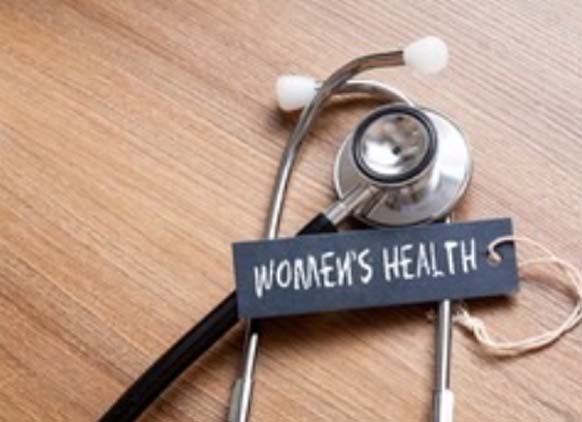Well Woman Care
Well Woman Care

Our well woman care services include:
- Cervical cancer screening (including pap smear and HPV testing)
- Breast cancer screening (including mammogram)
- Sexually transmitted infection screening
- Uterine and Ovarian cancer screening
- Contraception/Birth control
- Smoking cessation
- Blood pressure screening
An annual well-woman exam is a great way to maintain your good health. Because your overall health can affect fertility and reproduction, annual well-woman exams include screenings for all major health problems in addition to your gynecological health. Your well-woman exam will include:
 Cervical cancer screening
Cervical cancer screening
Most women who receive regular gynecological care know about pap smears and HPV testing, but guidance on how often women should have them done is changing. Extensive research has shown that the Human Papilloma Virus (HPV) causes most types of cervical cancer. HPV testing can help identify your specific risk for developing cervical cancer. It can also help determine a personalized testing schedule for this disease. An HPV vaccine is available. Adolescents and young adults (both male and female) who receive the HPV vaccine tend to have a much lower risk of developing HPV-related cancers in their lifetimes.
 Breast cancer screening
Breast cancer screening
According to the Centers for Disease Control and Prevention, being female and being over the age of 50 are the two biggest risk factors for developing breast cancer. However, a woman can develop breast cancer at any age. Uncontrollable factors for developing breast cancer include a woman’s genetic profile, her reproductive history, and personal or familial histories of breast cancer. Controllable risk factors include an inactive lifestyle, being overweight at menopause, taking hormones and using alcohol. Routine screening for breast cancer can help you understand and manage your risks for developing this disease.
 Sexually transmitted infection screening
Sexually transmitted infection screening
Routine testing for sexually transmitted infections is an important part of a well-woman exam, even when you are in a monogamous sexual relationship. Many sexually transmitted infections initially have few, mild or even no symptoms.
Left untreated, sexually transmitted infections can cause serious health issues including sterility, blindness, damage to the skeleton and internal organs, cancer, pelvic inflammatory disease, painful intercourse, birth defects and even death.
While curative treatments exist for many sexually transmitted infections, some infections are permanent. Receiving regular, confidential medical care from a trusted healthcare provider can help you to manage these conditions, and potentially avoid transmission to your sexual partners and/or unborn babies.
 Ovarian and Uterine Cancer screening
Ovarian and Uterine Cancer screening
 According to the American Cancer Society, only about 1 in 5 cases of ovarian cancer are detected early, but early detection is the best predictor of long-term survival. Your doctor can potentially detect ovarian abnormalities by conducting an annual pelvic exam, but other diagnostic tests, including transvaginal ultrasounds and the CA-125 blood test, can more reliably detect this type of cancer. Typically, these tests are offered to women at an increased risk of developing ovarian cancer.
According to the American Cancer Society, only about 1 in 5 cases of ovarian cancer are detected early, but early detection is the best predictor of long-term survival. Your doctor can potentially detect ovarian abnormalities by conducting an annual pelvic exam, but other diagnostic tests, including transvaginal ultrasounds and the CA-125 blood test, can more reliably detect this type of cancer. Typically, these tests are offered to women at an increased risk of developing ovarian cancer.
Uterine cancer can be diagnosed by performing an endometrial biopsy or a transvaginal ultrasound, but there is no simple screening test for this type of cancer. Warning symptoms include abnormal bleeding, bleeding between periods, and pain or pressure in the pelvis. There are several other conditions that can cause these symptoms, so it is important to talk with your doctor if you experience any of these events.
 Contraception/Birth control
Contraception/Birth control
There are many different family planning options available for women in their reproductive years. Not every option may work well for every woman. Having a conversation with Dr. Chismar about each option and its risks will enable you to determine the best contraception choices for you. For a more complete list of the birth control options we offer, please visit our contraception page.
CLIENT TESTIMONIAL: Dr. Chismar and his staff are great! He is direct and to the point which I prefer. He runs appointments on time and quick but not rushed. He was very sympathetic with changes and uncertainty with COVID. Meaghan, his wife, is equally amazing! She answered so many breastfeeding questions. This was my 4th baby but I learned so much I wish I had known with my previous babies! Meaghan also works hard with billing. Our insurance changed the month our baby was born and it caused a lot of problems but she worked it out with us so the correct insurance paid their part.
CLIENT TESTIMONIAL: Dr. Chismar and his staff are great! He is direct and to the point which I prefer. He runs appointments on time and quick but not rushed. He was very sympathetic with changes and uncertainty with COVID. Meaghan, his wife, is equally amazing! She answered so many breastfeeding questions. This was my 4th baby but I learned so much I wish I had known with my previous babies! Meaghan also works hard with billing. Our insurance changed the month our baby was born and it caused a lot of problems but she worked it out with us so the correct insurance paid their part.
 Smoking cessation
Smoking cessation
Smoking can negatively affect the following:
- Several types of cancer
- Emphysema and other lung diseases
- High blood pressure
- Heart disease
- Strokes
- Vascular diseases
- Eye diseases
- Dental problems
- Bone loss
- Blood clots
- Circulatory diseases
There are very few organs that cigarette smoking does not negatively affect!
Cigarette smoking is associated with low birth weight in babies, premature deliveries, stillbirth, ectopic pregnancies, orofacial deformities (like cleft palate) and Sudden Infant Death Syndrome (SIDS) in newborns.
Smoking cessation is extremely important if you are pregnant or planning to become pregnant. Dr. Chismar offers medical interventions that can help you stop smoking and give your baby the best possible start in life.
 Blood pressure screening
Blood pressure screening
Regular monitoring of your blood pressure is part of any well-woman exam. High blood pressure is truly a silent killer. Some oral contraceptives can raise blood pressure in some women. If you routinely take oral contraceptives, it is important to monitor your blood pressure regularly.
Left untreated, chronically high blood pressure can cause permanent damage to your circulatory system, kidneys and other internal organs. It can also cause strokes and heart attacks.
It is also important to know that your blood pressure can rise dangerously high without producing any outward symptoms. Likewise, high blood pressure can occur in anyone at any age. The only way to know your blood pressure is to measure it.


